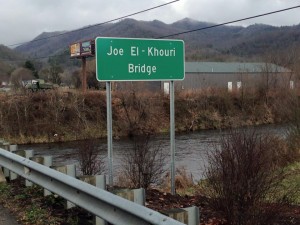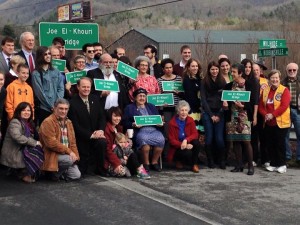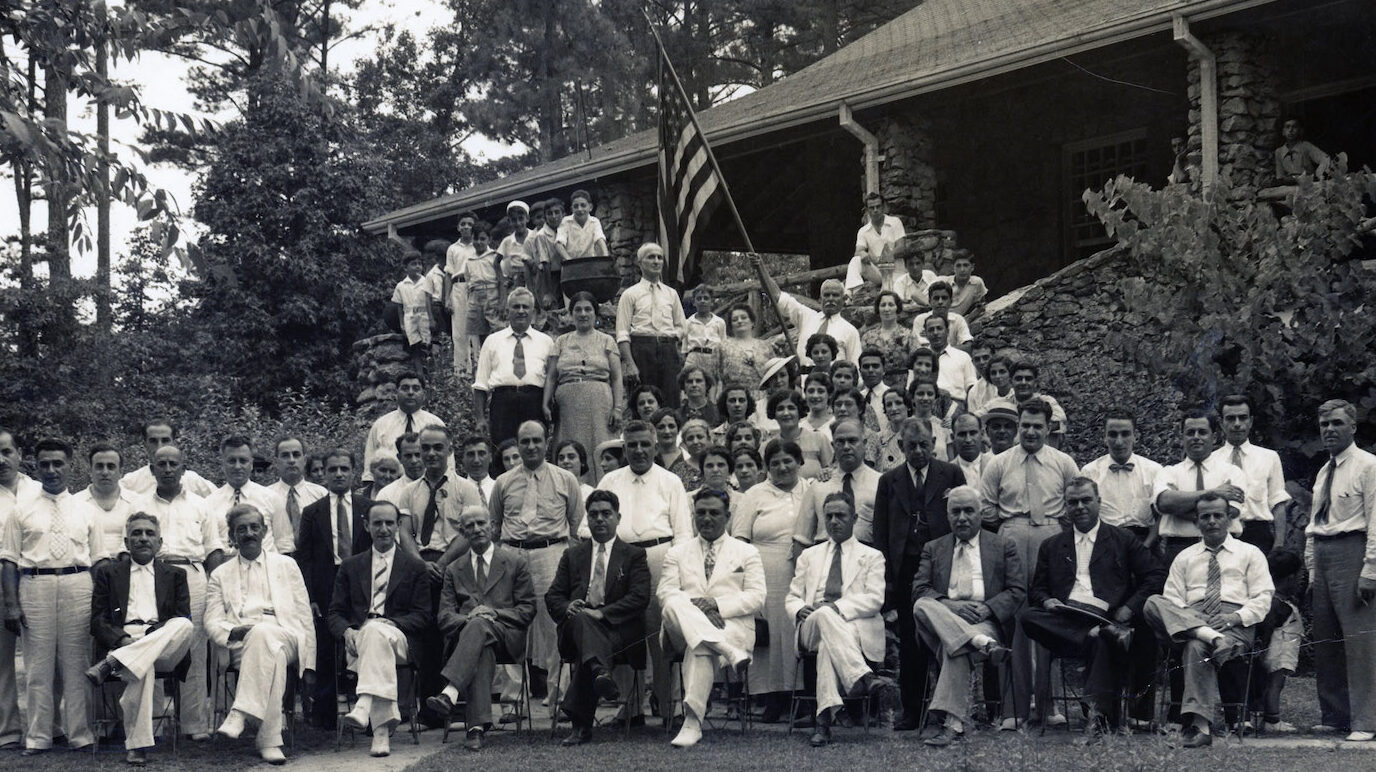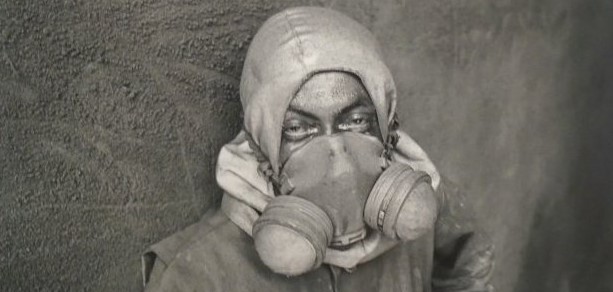Bridging the Divide in Andrews, North Carolina
This article originally appeared on Arab American Institute’s website on January 20, 2015. The author, Joan Hanna, granted the Center permission to republish.
A Note from the Center: In 2010, when we established the first iteration of this endeavor, we focused on the diverse community of Lebanese living in North Carolina. We interviewed families about immigration, food, business, civic life and politics, family, marriage, and identity. It was through these experiences that we gained the support to broaden our endeavor into a national one with a focus on the Lebanese diaspora beyond North Carolina. However, the original interviews we conducted, photographs we scanned, and outpouring of generosity we received, remains at the core of what we are able to accomplish each day. It is for that reason that we are so excited families like the El-Khouri family of Andrews, NC is featured by AAI. Thanks to the El-Khouri family for being so generous with the stories you tell and to Joan and the team at AAI for recognizing the contributions of Lebanese in North Carolina and throughout the diaspora. For more information on the El-Khouri family, check out their home movies on YouTube and their digital archive on our website.
* * *
For the Lebanese El-Khouri family in Andrews, North Carolina, having a bridge dedicated to the late Joe El-Khouri, a revered community leader, is a high honor. Late last month, the North Carolina Department of Transportation publicly recognized Bridge No. 92 as the “Joe El-Khouri Bridge.” No one is prouder than George El-Khouri, Joe’s oldest son. When his family moved to Andrews, North Carolina in 1955, George recalls that the El-Khouri’s were the first “Catholics, Yankees and foreigners” – in other words, they were not accepted right away. Through years of service and community activism, Joe El-Khouri left a huge mark on his adopted hometown of Andrews, and is a true immigrant success story. As a former World War II British intelligence agent and interpreter in the Middle East, Joe did not plan on living in the United States. But while Joe was assisting a fellow Lebanese friend in Minnesota, he decided to stay; around the same time, he befriended a staffer in then U.S. Senator Hubert Humphrey’s office. Eventually, he was introduced to the Senator, who later became Vice President under Johnson, and the two became good friends while Senator Humphrey facilitated Joe’s naturalization process. Joe even worked on the Vice President’s presidential campaign in 1968. When Joe settled with his family in North Carolina, his patriotism was highlighted by his involvement in politics, numerous community service efforts and his acute business skills. Inspired by Senator Humphrey’s friendship and integrity, Joe became actively involved in the Democratic Party and the Lions Club in Andrews. George recalls that through these institutions, “All of daddy’s other involvements in the community were a spinoff from that.” Joe moved up the ladder in the Lions Club becoming a district governor, was an integral part of the United Way, the local Chamber of Commerce, and his children’s school board. Joe also chartered a food bank for the less fortunate in the community and founded the Holy Redeemer Catholic Church with his wife Rose. Joe was engaged in all of these activities while managing – and eventually running – his wife’s family’s department store. Andrews, North Carolina came to fondly know Joe and his family, and the community began to accept and understand their Lebanese American culture. Reflecting on his childhood, George remembers that Joe instilled many important things in his family.
In particular, Joe held being a family man and having a sense of heritage as top priorities. “The best thing I’ve ever done is start a family, having children and now grandchildren. Then, being an American – a Lebanese American. The happiest days of my life were when my children were born, getting married and attending the Democratic National Convention with my daddy in Atlanta. It revolves around family and heritage. Nothing’s more important than family.” George recognizes the symbolism of dedicating a bridge to Joe. It’s a bridge that people of all walks of life have travelled on: from poor to rich, from Cherokee Indians to local townspeople to foreigners and to immigrants like the El-Khouri family. The bridge represents connecting the American culture on one side and Lebanese culture on the other. “He grew up poor in Lebanon and he saw that too in the mountainous towns of North Carolina. The mountains reminded him of those in Lebanon and he felt a sense of connection and understanding to the people there – some didn’t have running water, the people needed help and my daddy tried to help as much as he could, inside the business and outside of the business.”
- Categories:




